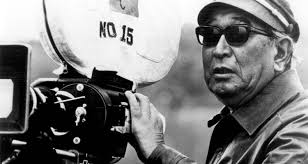Meet Akira Kurosawa(1):The Pioneer of Japanese Cinema
Akira Kurosawa, born in Tokyo in 1910, stands as one of the most influential directors in cinematic history. He revolutionized Japanese cinema and placed it on the global stage with films that were not only visually striking but also deeply philosophical. In 1950, Kurosawa released Rashomon, a film that changed everything. Through the use of non-linear storytelling, the movie presented multiple perspectives of the same event, leaving the truth ambiguous and forcing audiences to question the nature of reality. This technique was groundbreaking at the time and demonstrated Kurosawa’s mastery of narrative structure.
Kurosawa’s success with Rashomon* earned him international recognition, particularly at the Venice Film Festival, where the film won the prestigious Golden Lion. This paved the way for other Japanese filmmakers to gain global attention and set the stage for Kurosawa’s long-standing legacy. His work often explored universal themes of justice, honor, and the human condition—topics that transcended cultural boundaries. With Rashomon, Kurosawa proved that Japanese cinema could not only compete with Hollywood but offer something entirely new to the world.
*For more on how Rashomon revolutionized storytelling, check out Donald Richie’s The Films of Akira Kurosawa .



luck33gameappk
Heard about luck33gameappk.com. If you are looking for the app, it seems fine Check out luck33gameappk for the apk file.
phfamous
Phfamous has a very nice user interface. Simple to navigate, with promotions popping up all the time. Stop by and have a look at phfamous.
casino plus app download
Downloading the Casino Plus app now. Heard good things. Hope it doesn’t eat too much data! Let’s get this party started.casino plus app download
cialis for daily use dosage
Hola! I’ve been following your web site for a while now and finally got the courage to go ahead and give you a shout out from Dallas Tx! Just wanted to mention keep up the fantastic job!
sildenafil medication other names
I am sure this piece of writing has touched all the internet users, its really really pleasant article on building up new website.